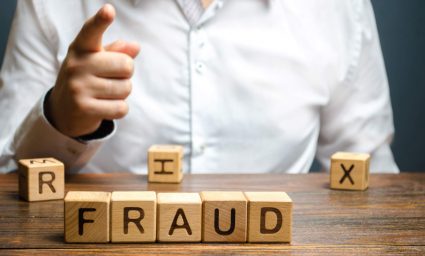 When you face financial hardships, it can be incredibly overwhelming, leading to a desperate search for solutions that promise to alleviate your situation. The constant struggle to manage essential daily expenses can make seemingly generous offers appear attractive, even though they may not be in your best interest. While it’s crucial to avoid high-interest payday loans or excessive credit borrowing, it’s equally important to stay alert to offers of financial assistance that may seem legitimate on the surface. Often, the funds that appear to be available for your claim are cleverly disguised traps established by deceitful scammers intent on capitalizing on your vulnerable state.
When you face financial hardships, it can be incredibly overwhelming, leading to a desperate search for solutions that promise to alleviate your situation. The constant struggle to manage essential daily expenses can make seemingly generous offers appear attractive, even though they may not be in your best interest. While it’s crucial to avoid high-interest payday loans or excessive credit borrowing, it’s equally important to stay alert to offers of financial assistance that may seem legitimate on the surface. Often, the funds that appear to be available for your claim are cleverly disguised traps established by deceitful scammers intent on capitalizing on your vulnerable state.
Currently, a vast array of scams is targeting individuals’ financial vulnerabilities, making it imperative to remain vigilant and well-informed. A fundamental principle to remember when assessing potential scams is simple: if an offer sounds too good to be true, it likely is. In this detailed guide, we will explore various scams that prey on individuals facing financial difficulties, equipping you with the essential knowledge to differentiate between legitimate opportunities and fraudulent schemes that could jeopardize your finances.
Protect Your Tax Refund: Understand Your Rights and Responsibilities
There are valid methods through which you can claim tax refunds for a range of expenses, including work-related tools, uniforms, and mileage. However, these processes typically require interaction with a tax rebate services company, which necessitates granting them access to your tax records. It’s crucial to realize that no governmental agency, including HMRC, can accurately ascertain your entitled refund without your active engagement or consultation with a qualified accountant. Therefore, it is vital to exercise caution when you encounter unsolicited messages claiming that “HMRC has a tax refund of £261 waiting for you.” These messages often mention realistic amounts, skillfully avoiding the outrageous claims characteristic of other scams, such as the infamous Nigerian Prince schemes. Instead, these messages may lead you to dubious websites where you could unintentionally disclose sensitive information, resulting in identity theft or significant financial loss.
To verify whether such communication is indeed a scam, meticulously examine the sender’s details. If you receive a text message, confirm the legitimacy of the originating phone number. It is wise to avoid responding to such messages and instead contact HMRC directly for verification. Remember that HMRC typically communicates through letters or emails directed to your registered address, rather than through unsolicited text messages. Additionally, you now have the ability to access your personal online tax account, where you can view notifications directly from HMRC. When evaluating an email, scrutinize the sender’s address closely; it should originate from an official HMRC domain. Always refrain from clicking on any links included in suspicious messages.
How to Spot and Avoid the National Insurance Number Scam
Recent reports, including those from the Daily Express, indicate that numerous individuals have fallen victim to the National Insurance scam, which primarily operates through telephone calls. This method sets it apart from many other scams, as scammers may contact you via either your landline or mobile device. The scam usually begins with a panic-inducing message stating that your national insurance number has been compromised. This alarming tactic aims to create a sense of urgency, pushing you to press a button to speak with someone who can help. However, taking such action often results in incurring premium call charges while the scammers gather your personal information.
To ascertain whether such a call is a scam, remember that legitimate organizations will never instruct you to press a button to continue the conversation. If you feel uncertain, simply hang up and conduct a quick online search for the provided phone number. A brief investigation can frequently reveal whether the number is associated with known scams, enabling you to safeguard yourself effectively.
Identifying and Protecting Yourself from DPD or UPS Delivery Scams
Another widespread scam involves receiving unsolicited texts or emails indicating that a parcel is awaiting your action. These messages typically prompt you to click on a link to provide personal information, which is a major red flag for potential fraud. To protect yourself, carefully examine the source of the email. Scammers often use distorted or unusual email addresses that do not correspond with legitimate businesses. Furthermore, check any recent orders you’ve placed on platforms like Amazon or eBay; these platforms usually offer comprehensive tracking information for your convenience.
It’s also essential to keep in mind that while carriers like DHL may charge duties on international shipments, they will always provide you with specific details regarding your parcel and its origin. If you receive vague messages about package deliveries without having placed previous orders, exercise extreme caution. Staying informed about personal finance scams is crucial in protecting yourself from falling victim to such schemes. If financial struggles make these scams seem enticing, consider reaching out to us; we can assist you with our debt consolidation loans for bad credit. We are here to help you navigate your financial challenges securely.
The Article Finance Scams to Watch Out For Was Found On https://limitsofstrategy.com




Your insights on the challenges of financial hardships and the potential traps that accompany them resonate deeply with many individuals navigating these difficult waters. When facing economic strain, the urgency to find quick relief can often cloud judgment, leading us to overlook the warning signs of predatory schemes.
You make a great point about how financial strain can really skew our perspective. When you’re in that tight spot, it’s like every decision feels magnified, and the pressure to act quickly can push us into situations we wouldn’t consider under normal circumstances. That urgency is a double-edged sword—while it can motivate us to seek solutions, it can also make us vulnerable to those who might take advantage of our desperation.
You really nailed the complexity of that pressure. It’s interesting how financial strain can warp our decision-making processes. I’ve been there myself, feeling that urgency to fix everything right away. Sometimes it feels like there’s an invisible clock ticking down, and honestly, it can lead to choices that don’t align with our values or long-term goals.
You captured something really important about the feeling of urgency that comes with financial strain. It’s almost like being in a pressure cooker, right? That need to fix things immediately can drown out our better judgment.
Your insights on navigating financial hardships resonate deeply, especially in a time when so many are facing unprecedented challenges. It’s disheartening to think about the vulnerability many individuals feel when they are struggling to make ends meet. I completely agree with your caution against seemingly attractive offers; there’s a fine line between seeking legitimate assistance and falling into the traps set by opportunistic scammers.
It’s a tough corner to be in when financial strains hit, and you’re right—the vulnerability can really weigh heavily on people. One thing I’ve noticed is that sometimes the simplest solutions can feel really out of reach. When the pressure’s on, it’s tempting to look for quick fixes, but that can lead people down a risky path.
You bring up some really important points. It’s wild to think how many people feel like they’re walking a tightrope with their finances these days. I mean, who hasn’t looked at their bank account and questioned if it’s just a really elaborate joke? There seems to be a unique challenge in balancing the books while dodging those flashy offers that glitter like a lure for fish. Who knew that navigating financial hardship would require the same skills as evading an ex at a party?